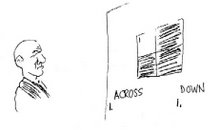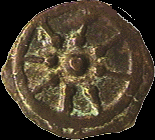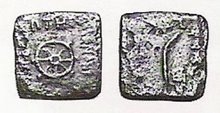Saturday, September 15, 2018
Trump is not King
Paul Manafort’s agreement to cooperate with Mueller’s investigation marks a crucial turning point for the RussiaGate.
Many charges against Manafort were not directly about RussiaGate. Instead, they were mainly about Manafort’s unregistered foreign lobbying work.
Mueller was using these charges to pressure Manafort to cooperate in the RussiaGate investigation — to flip on Donald Trump. And on Friday, Mueller finally landed that fish.
The deal delivers the highest-profile cooperator yet.
Who, after all, is a bigger fish than Manafort — other than Trump?
Mueller started off by trying to “flip” key Trump associates, getting them to agree to plea deals in which they’d cooperate.
Four people fall into this category. George Papadopoulos and Michael Flynn both struck plea deals. Then Rick Gates and Paul Manafort struck plea deals after being charged in relation to their Ukrainian lobbying work. Flynn and Gates have been cooperating for months now.
Manafort’s cooperation has only just begun.
Mueller is using these flippers as building blocks for his larger case on that central matter. He’s lined up his cooperating former Trump aides, and he’s indicted some Russians.
Mueller’s team (and government officials the team has contacted) have made clear the special counsel has been delving deep into Trump and his associates’ ties to Russia.
• Trump’s inauguration: The special counsel has also investigated Russia-tied donations to Trump’s inaugural committee.
• The Seychelles meeting and Gulf money: Shortly before Trump’s inauguration, Erik Prince held a meeting in Seychelles with a Russian fund manager. The meeting was facilitated by the crown prince of the United Arab Emirates and his adviser, George Nader. Keep an eye on this one.
• Roger Stone’s associates: Mueller has questioned people in the orbit of longtime Trump adviser Roger Stone. Stone was in contact with WikiLeaks and the Guccifer 2.0 persona (which was run by Russian intelligence) during the campaign.
Manafort knows a lot about these avenues of investigation. He chaired the Trump campaign, attended the Trump Tower meeting, was a longtime business partner of Roger Stone, and also worked for a Russian oligarch.
Wednesday, September 12, 2018
Out of touch?
Two months ahead of the midterm elections, Democrats hold a clear advantage over Republicans in congressional vote support.
The survey by Washington Post-ABC News also points to broad unrest and frustration with Mr Trump and the Republican Party who “are out of touch” with people.
Registered voters say they favor Democratic candidates over Republican candidates by 52 per cent to 38 per cent. That is an increase from the four-point edge in an April Post-ABC poll.
Because of the overall makeup of congressional districts, analysts have long said that Democrats would need a clear advantage if they hope to flip the 23 seats needed to take control. The Post-ABC poll puts Democrats in a stronger position with an edge of more than eight points in every recent survey.
Democrats are slightly more likely than Republicans to say they are absolutely certain to vote, by 80 per cent to 74 per cent.
Four years ago, when Republicans made gains in the midterm elections, the GOP enjoyed a 10-point advantage.
The latest survey also indicated that 63% of the people who had not voted in 2014 now say they are “absolutely certain” to vote in November. This favors Democrats by 7 to 3.
The past three midterm elections - 2006, 2010 and 2014 - produced substantial losses for the party that held the White House.
Presidential approval has become a strong indicator of which party voters will support in midterm elections. More than eight in 10 voters disapprove the president's performance.
In the Post-ABC poll, more than eight in 10 of Trump disapprovers support Democrats. Given Mr Trump's current low ratings, this puts Republicans at a clear disadvantage heading towards November.
Mr Trump's current average in surveys polling random samples of registered voters since mid-August is about 42 per cent. Republicans know they will be exceedingly vulnerable in November if the president is not able to improve his standing.
Ironically, many Republicans are worried about whether they can hold the House during a time of positive economic assessments which underscores how much Mr Trump's unpopularity has undermined the party' greatest asset as fall campaigning begins.
The voters now favor Democrats over Republicans at 70 to 20 per cent, a 50-point margin. But Republicans hold only a seven-point advantage with voters who view the economy positively, 49 to 42 per cent.
When asked whether they would rather have Democrats control Congress "as a check on Trump" or a Republican-controlled Congress "to support Trump's agenda," 60 per cent of voters say they prefer having Democrats in control.
Meanwhile, 59 per cent of voters say it is extremely or very important for them to support a candidate who shares their opinion of Mr Trump, a figure that has grown seven points since April. Sixty-nine per cent of Democrats and 65 per cent of Republicans say they are seeking candidates with similar views of the president, suggesting that Mr Trump is a motivator for both his supporters and his opponents.
Americans sense high stakes for the November elections, which could boost turnout from a half-century low point in 2014. Nearly two-thirds of registered voters say it is more important to vote now than in past midterms. Democratic voters say that voting this fall is more important than in previous midterm years, by 75 per cent.
A Democratic takeover of the House would break unified Republican control of the federal government and give lawmakers substantial power to launch investigations of the Trump administration on a range of fronts.
Many Democrats have avoided talking about impeachment proceedings that could remove Mr Trump from office.
The Post-ABC poll finds that 72 per cent of all adults think the Democrats would seek to impeach the president if they were in power in the House, including 79 per cent of Republicans and 70 per cent of Democrats.
On the question of who is in touch with the American people, the perception of the president and the GOP has changed little since the day Mr Trump took office, with 63 per cent saying each are out of touch.
Tuesday, September 11, 2018
Another disaster
Expanding in size yet again, that moron Donald Trump is on a beeline toward another golf course.
Expanding in size and strengthening yet again, Hurricane Florence Foster Jenkins is on a beeline toward the Carolinas as an “extremely dangerous” Category 4 hurricane.
Catastrophic flooding and destructive winds are becoming very likely in the eastern Carolinas north of Charleston, where hurricane warnings were issued late Tuesday.
Forecasts generally project the storm to make landfall between South Carolina and North Carolina as a Category 3 or 4 Friday, although storm impacts will expand great distances (e.g. +/- 150 miles) beyond where landfall occurs.
This is the biggest disaster to hit the area since Trump was elected.
Monday, September 10, 2018
Most volatile candidate not on ballot
Heading into the midterm elections, the most volatile candidate this year isn't on the ballot. But Trump still loves to go on the road and soak up the adoration of his cult.
His eagerness to protect his political flank has led Republican officials to devise a strategy for managing the president. It's designed to keep him out of places where he can be harmful.
His unpredictability ends up doing real damage.
There's a constant effort to keep him on his best behavior.
This past week, Trump heeded pleas from advisers and Colorado Sen. Cory Gardner to refrain from picking a favorite in the Arizona primary. Later, at a rally in Indiana for Senate candidate Mike Braun, the president largely stuck to his script criticizing Sen. Joe Donnelly, D-Ind.
Aides believe Trump's drawing power is critical to a strong turnout among the most rigid GOP voters. But his presence could be counterproductive in many House districts.
This celebrity-turned-president is hardly a selfless leader of his adoptive party. He launched his own re-election campaign just weeks after his swearing-in last year, rather than waiting until after the midterm elections, as did his predecessors.
Trump is motivated by self-protection. He's keenly aware of the threats and investigations that could come his way if Democratic hold a majority in either the House or Senate.
Trump created an unnecessary political firestorm with his delayed and muted response to the death of Sen. John McCain.
At his Indiana rally, Trump stuck to familiar themes. He did not mention McCain, avoiding the well-worn tale about the senator's pivotal vote against the president's attempted destruction of Obamacare.
The mere fact that Trump kept the senator out of his remarks was notable.
While Trump's White House remains turbulent, insiders said the political shop has managed to impose some discipline.
Some races have proved complicated, as in the Arizona Senate race, where Kelly Ward and former Maricopa County Sheriff Joe Arpaio both promoted their ties to Trump, as did establishment favorite Rep. Martha McSally. Trump stayed out of the race and McSally handily defeated the two controversial candidates, averting what could have been a disaster for the party this fall.
In the Tennessee, Trump stayed out of that race.
But the president could not be persuaded to stay silent in other cases.
He supported Foster Friess in the GOP gubernatorial primary in Wyoming. Friess lost.
Aides said they pick their battles, prioritizing races that could swing the balance of congressional control.
For political travel, White House staffers, who are coordinating with party aides, have divided the electoral map into places Trump can be helpful and places where it's better to send in Pence, Cabinet secretaries, or others.
The conservative House Freedom Caucus is "prioritizing places where Trump performed well and where there's a strong network of support," said North Carolina Rep. Mark Meadows.
Whenever Trump makes a political trip, aides try to make sure the candidate meets the president at the airport – giving the appearance of “a welcome.”
Trump is well known for turning the spotlight on his own accomplishments.
Trump's rallies have only served to boost the GOP's email and voter contact. Attendees are entered into the party's database system.
Subscribe to:
Comments (Atom)





























































